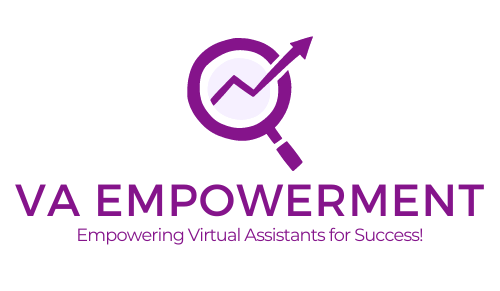How Do I Handle Taxes And Finances As A Virtual Assistant?
Navigating taxes and finances can be a daunting task for virtual assistants. As you embark on your journey as a virtual assistant, it is essential to understand the intricacies of managing your taxes and finances effectively. From understanding self-employment tax obligations to keeping track of business expenses, taking charge of your financial responsibilities is crucial for success. This article aims to provide guidance and insights on how to handle taxes and finances as a virtual assistant, ensuring that you can confidently manage your financial matters and maximize your earnings.

Understanding Your Tax Obligations
As a virtual assistant, it is important to understand your tax obligations in order to avoid any legal issues or financial penalties. This means identifying your tax classification, learning about self-employment taxes, and understanding estimated tax payments.
Identify your tax classification
The first step in understanding your tax obligations is to identify your tax classification. As a virtual assistant, you are likely to be classified as a self-employed individual. This means that you are responsible for reporting and paying your own taxes, rather than having an employer withhold taxes from your paycheck.
Learn about self-employment taxes
Being classified as self-employed also means that you will be subject to self-employment taxes. Self-employment taxes consist of both the employee and employer portions of Social Security and Medicare taxes. It is important to be aware of these taxes and to factor them into your budgeting and financial planning.
Understand estimated tax payments
Another important aspect of your tax obligations as a virtual assistant is making estimated tax payments. Since you do not have an employer withholding taxes from your income, you are responsible for making quarterly estimated tax payments to the Internal Revenue Service (IRS). These payments help you stay current on your tax liabilities and avoid any underpayment penalties.
Maintaining Accurate Records
In order to effectively manage your taxes and finances as a virtual assistant, it is crucial to maintain accurate records. This includes setting up a system for tracking your income and expenses, organizing receipts and invoices, and considering the use of accounting software.
Set up a system for tracking income and expenses
One of the first steps in maintaining accurate records is to set up a system for tracking your income and expenses. This could be as simple as using a spreadsheet or as sophisticated as using accounting software. The important thing is to have a system in place that allows you to easily track and categorize your financial transactions.
Keep receipts and invoices organized
Another important aspect of record-keeping is to keep your receipts and invoices organized. This includes keeping physical copies of receipts or storing digital copies in a dedicated folder. This will make it much easier when it comes time to prepare your taxes or provide documentation for your business expenses.
Consider using accounting software
As your virtual assistant business grows, you may want to consider using accounting software. Accounting software can help automate many of the tasks associated with bookkeeping and record-keeping, such as tracking income and expenses, generating financial reports, and even assisting with tax preparation. There are many options available, so be sure to research and choose one that best fits your needs.
Income Reporting
One of the key aspects of handling taxes and finances as a virtual assistant is accurately reporting your income. This means reporting all income received, consolidating income from various clients, and using IRS Form 1099-MISC for clients who pay you $600 or more.
Report all income received
As a virtual assistant, it is imperative to report all income received. This includes income from clients, as well as any other sources of income related to your business. Failing to report your income accurately could lead to penalties and legal issues, so it is important to keep detailed records and include all income on your tax return.
Consolidate income from various clients
If you work with multiple clients as a virtual assistant, it is important to consolidate your income from these various sources. This will make it easier to track and report your total income accurately. Consider using a separate bank account or accounting software to help streamline this process and make it more efficient.
Use IRS Form 1099-MISC for clients who pay you $600 or more
For clients who pay you $600 or more over a year, they are required to issue you an IRS Form 1099-MISC. This form reports the income they paid you and is an important document for accurately reporting your income on your tax return. Be sure to keep track of these forms and include the information on your tax filings.
Deductible Business Expenses
Identifying and understanding deductible business expenses is another important aspect of managing your taxes and finances as a virtual assistant. This includes identifying eligible business expenses, keeping track of deductible expenses, and learning about home office deductions.
Identify eligible business expenses
Eligible business expenses are those that are necessary and ordinary for the operation of your virtual assistant business. This can include expenses such as office supplies, computer equipment, professional development courses, and advertising costs. It is important to keep detailed records of these expenses and consult with a tax advisor or accountant to ensure that they are eligible for deduction.
Keep track of deductible expenses
To claim deductions for eligible business expenses, it is essential to keep track of these expenses throughout the year. This includes retaining receipts, invoices, and any other documentation that proves the expense was incurred for business purposes. This documentation will be crucial when it comes time to prepare your taxes and provide evidence of your deductible expenses.
Learn about home office deductions
If you operate your virtual assistant business from a home office, you may be eligible for a home office deduction. This allows you to deduct a portion of your housing expenses, such as rent, mortgage interest, utilities, and insurance, that are related to the space used for your business. However, there are specific criteria and limitations for claiming this deduction, so it is important to understand the requirements and consult with a tax professional.

Self-Employment Taxes
Self-employment taxes are a significant aspect of managing your taxes and finances as a virtual assistant. It is important to calculate and pay self-employment taxes accurately, consider making quarterly estimated tax payments, and understand self-employment tax deductions.
Calculate and pay self-employment taxes
Self-employment taxes consist of both the employee and employer portions of Social Security and Medicare taxes. As a self-employed individual, you are responsible for paying both portions of these taxes. It is important to accurately calculate your self-employment tax liability and to pay it promptly to avoid penalties and interest.
Consider making quarterly estimated tax payments
Since you do not have taxes withheld from your income as a self-employed individual, it is important to make quarterly estimated tax payments to the IRS. These payments help you stay current on your tax obligations and avoid any underpayment penalties. Consult with a tax professional to determine the appropriate amount to pay each quarter based on your income and expenses.
Understand self-employment tax deductions
While self-employment taxes can be a significant expense, there are deductions available to help offset this liability. Self-employment tax deductions include deductions for half of the self-employment tax paid, as well as deductions for eligible business expenses. It is important to understand these deductions and consult with a tax professional to ensure you are taking full advantage of them.
Tax Deadlines and Extensions
Staying informed about tax filing deadlines, requesting an extension if needed, and avoiding late filing penalties are essential when it comes to managing your taxes and finances as a virtual assistant.
Stay informed about tax filing deadlines
It is crucial to stay informed about tax filing deadlines to ensure that you file your taxes on time. As a self-employed individual, the deadline to file your federal income tax return is typically April 15th. However, it is important to check the IRS website or consult with a tax professional to confirm the specific deadlines for each tax year.
Request an extension if needed
If you find that you are unable to meet the tax filing deadline, you can request an extension from the IRS. This will give you additional time to prepare and file your return without incurring late filing penalties. Keep in mind that an extension of time to file does not grant an extension of time to pay any tax owed, so it is important to estimate and pay any tax liability by the original deadline.
Avoid late filing penalties
Failing to file your tax return by the deadline can result in significant penalties and interest. It is important to adhere to the tax filing deadlines and ensure that your return is filed on time. If you are unable to file by the deadline, be sure to request an extension to avoid any unnecessary penalties.

Seek Professional Guidance
Seeking professional guidance is an important aspect of managing your taxes and finances as a virtual assistant. Consult with a tax advisor or accountant, understand tax laws specific to your country, and get advice on minimizing tax liabilities.
Consult with a tax advisor or accountant
Working with a tax advisor or accountant can provide valuable guidance and expertise when it comes to managing your taxes and finances as a virtual assistant. They can help you navigate complex tax laws, ensure compliance, and provide strategic advice on minimizing your tax liabilities. It is important to find a qualified professional who specializes in working with self-employed individuals or small businesses.
Understand tax laws specific to your country
Tax laws can vary from country to country, so it is important to understand the specific tax laws and regulations that apply to you as a virtual assistant. This includes understanding how self-employment income is taxed, any deductions or credits that may be available to you, and any reporting requirements or obligations. Educate yourself on the tax laws specific to your country or seek professional guidance to ensure compliance.
Get advice on minimizing tax liabilities
Minimizing tax liabilities is an important goal for any virtual assistant. An experienced tax advisor or accountant can provide advice on legal strategies to reduce your tax burden. This could include taking advantage of tax deductions, structuring your business in a tax-efficient manner, or utilizing retirement savings plans. Seek professional guidance to optimize your tax situation and maximize your financial outcomes.
Maintaining Financial Security
Maintaining financial security is crucial for the long-term success and stability of your virtual assistant business. This includes setting aside funds for taxes, creating a budget for personal and business expenses, and planning for retirement and savings.
Set aside funds for taxes
Setting aside funds for taxes is critical to ensure that you have the necessary funds available when it comes time to pay your tax liabilities. Estimate your tax obligations and calculate the appropriate amount to set aside from each payment you receive as a virtual assistant. Keeping these funds separate from your personal and business accounts can help you avoid the temptation to use them for other purposes.
Create a budget for personal and business expenses
Creating a budget is an essential part of managing your finances as a virtual assistant. This includes understanding and categorizing your personal and business expenses and allocating funds accordingly. A budget will help you make informed spending decisions, track your income and expenses, and ensure that you are prepared for any financial obligations.
Plan for retirement and savings
As a self-employed individual, it is important to plan for your retirement and savings. Consider setting up a retirement savings plan, such as a Simplified Employee Pension (SEP) IRA or a solo 401(k), to ensure that you are saving for the future. Additionally, continue to prioritize personal savings to create a financial safety net and to invest in your long-term financial goals.
Insurance and Retirement
Insurance and retirement planning are important considerations for managing your taxes and finances as a virtual assistant. This includes considering insurance options for self-employment, exploring retirement savings plans for self-employed individuals, and reviewing health insurance options.
Consider insurance options for self-employment
As a self-employed individual, it is important to consider insurance options to protect yourself and your business. This can include liability insurance, professional liability insurance, business interruption insurance, and health insurance. Assess your risks and consult with an insurance professional to determine the appropriate coverage for your needs.
Explore retirement savings plans for self-employed individuals
As a virtual assistant, you are responsible for your retirement savings. Explore retirement savings plans designed for self-employed individuals, such as a Simplified Employee Pension (SEP) IRA or a solo 401(k). These plans offer tax advantages and can help you save for your future while reducing your current tax liability. Consult with a financial advisor to determine the best retirement savings plan for your circumstances.
Review health insurance options
Health insurance is an important consideration for self-employed individuals. Explore health insurance options available to you, such as individual plans, group plans through professional associations, or marketplace plans. Take into account your specific healthcare needs and budget when choosing a health insurance plan. Consider consulting with an insurance professional to ensure that you have the appropriate coverage.
Staying Updated and Educated
Staying updated and educated about changes in tax laws and attending webinars or workshops on virtual assistant finances are essential for effectively managing your taxes and finances. Joining online communities for virtual assistants can also provide valuable support and knowledge-sharing opportunities.
Stay informed about changes in tax laws
Tax laws can change frequently, so it is important to stay updated about any changes that may impact your virtual assistant business. Subscribe to tax newsletters or blogs, follow reputable sources of tax information, and consult with a tax advisor or accountant to ensure that you are aware of any new laws or regulations that may affect your tax obligations.
Attend webinars or workshops on virtual assistant finances
Webinars or workshops focused on virtual assistant finances can provide valuable insights and knowledge. These educational opportunities can cover a wide range of topics, such as tax strategies, financial planning, budgeting, and business development. Consider attending these events to expand your knowledge and enhance your financial management skills.
Join online communities for virtual assistants
Joining online communities for virtual assistants can be a valuable resource for support and knowledge-sharing. These communities often have forums or discussion boards where you can ask questions, seek advice, and learn from others who are facing similar challenges. Engage in these communities to stay connected, learn from others, and share your own experiences and insights.
In conclusion, managing taxes and finances as a virtual assistant requires understanding your tax obligations, maintaining accurate records, reporting income accurately, identifying deductible expenses, and effectively navigating self-employment taxes. It is essential to stay informed and seek professional guidance, while also maintaining financial security, considering insurance and retirement options, and staying updated and educated about changes in tax laws. By following these guidelines, you can effectively manage your taxes and finances as a virtual assistant and ensure the long-term success and stability of your business.

